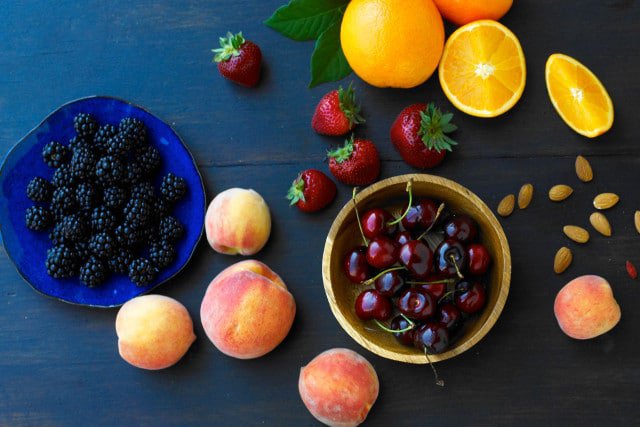Fuelling For A 5-K
Proper pre-race fuelling will help you stay energised for your 5K, without leaving you with an upset stomach.
Proper pre-race fuelling will help you stay energised for your 5K, without leaving you with an upset stomach. Follow these tips to have a great race.
1/ Stay hydrated

It’s best to sip water throughout the days before the race. Avoid chugging fluids right before the starting gun; this could you leave you feeling sick to your stomach or needing to take a break from the race to hit the portable toilets.
2/ No need to carbo-load
The practice of carbo-loading (increasing your intake of carbohydrate-heavy foods while cutting back on protein and fat in the days before a race) is geared for events of 90 minutes or longer. And more than likely, you’ll be done with your 5K long before that! For a 5K, it’s likely that you have enough fuel in your muscles — from a healthy pre-race meal — to race your best without risking running out of energy. If you attempt to carbo-load before a 5K, you’ll end up with lots of calories that you don’t need, which could make you feel bloated, nauseated and feeling like you have heavy legs by the time the starting gun fires.
3/ Eat a light pre-race breakfast
If your race is in the morning, consume a 200- to 300-calorie meal one to two hours before the race. The majority of the calories should come from whole, unprocessed carbs. Keep the meal low in fibre and fat; both take a long time to digest. Aim for under 10 grams of fibre per serving (or less if you have a sensitive stomach); limit fat to five to 10 grams. It’s also a good idea to stay away from the spicy stuff, which could upset your stomach.
Experiment with different foods before training runs so you know what works (or doesn’t work) for your system and there will be no surprises on race day. Check out our list of pre-run breakfasts or try one of these options:
– Bagel with a small apple plus 240ml of sports drink
– English muffin topped with two tablespoons of jam and a piece of fruit
– Bowl of porridge topped with raisins and brown sugar
4/ Don’t forget the fluids
Be sure to wash down your pre-race meal with plenty of fluids. Aim to consume 500-600ml of fluids two to three hours before the race, and another 200-300ml 20 minutes before the race begins. It’s okay to have coffee, tea or a sports drink if you regularly drink those fluids before your runs and they don’t upset your stomach.
5/ For a late-day race, eat light and healthy all day long
If your race is in the late afternoon or early evening, what you eat at breakfast and lunch will have a big impact on how you feel for the event. For breakfast, focus on carbs with some lean protein. You might try oatmeal with fruit, low-fat yoghurt topped with fruit and granola or a bagel topped with scrambled egg with fruit on the side. Cereal is a great bet, but avoid high-fibre cereals (those with more than five grams of fibre per serving).
At lunch, avoid high-fat and high-protein items since they take longer to digest. You might have a cup of pasta tossed with some tomato sauce, plus a cup of skimmed milk. (Skip the cheese and buttery garlic bread.) Or you might try a chicken sandwich (hold the mayo and go easy on the veg toppings) with a side of pretzels and a bottle of water. Avoid eating until you’re stuffed. You don’t want to arrive at the starting line still feeling full.
6/ Have a pre-race snack if you’re hungry
If you feel hungry on the way to the race, have a small snack of 150 to 250 calories that quiets your hunger but without filling you up, such as a small banana. Alternative, have some energy chews or an energy bar for quick fuel that’s easy to digest. Choose one that is high in carbohydrates and has less than 10 grams of protein and fat.
7/ Make time for a pit stop
Plan to arrive at the race with enough time to hit the bathrooms before the race begins without feeling rushed. Arriving at least one hour before the starting gun fires should give you plenty of time.
8/ Don’t do anything new
Whatever you consume, make it something that’s worked for you during your regular training runs. It should be something that makes you feel energised but doesn’t leave you with an upset stomach. Don’t try anything new; you don’t want your 5K to be derailed by a pit stop.








